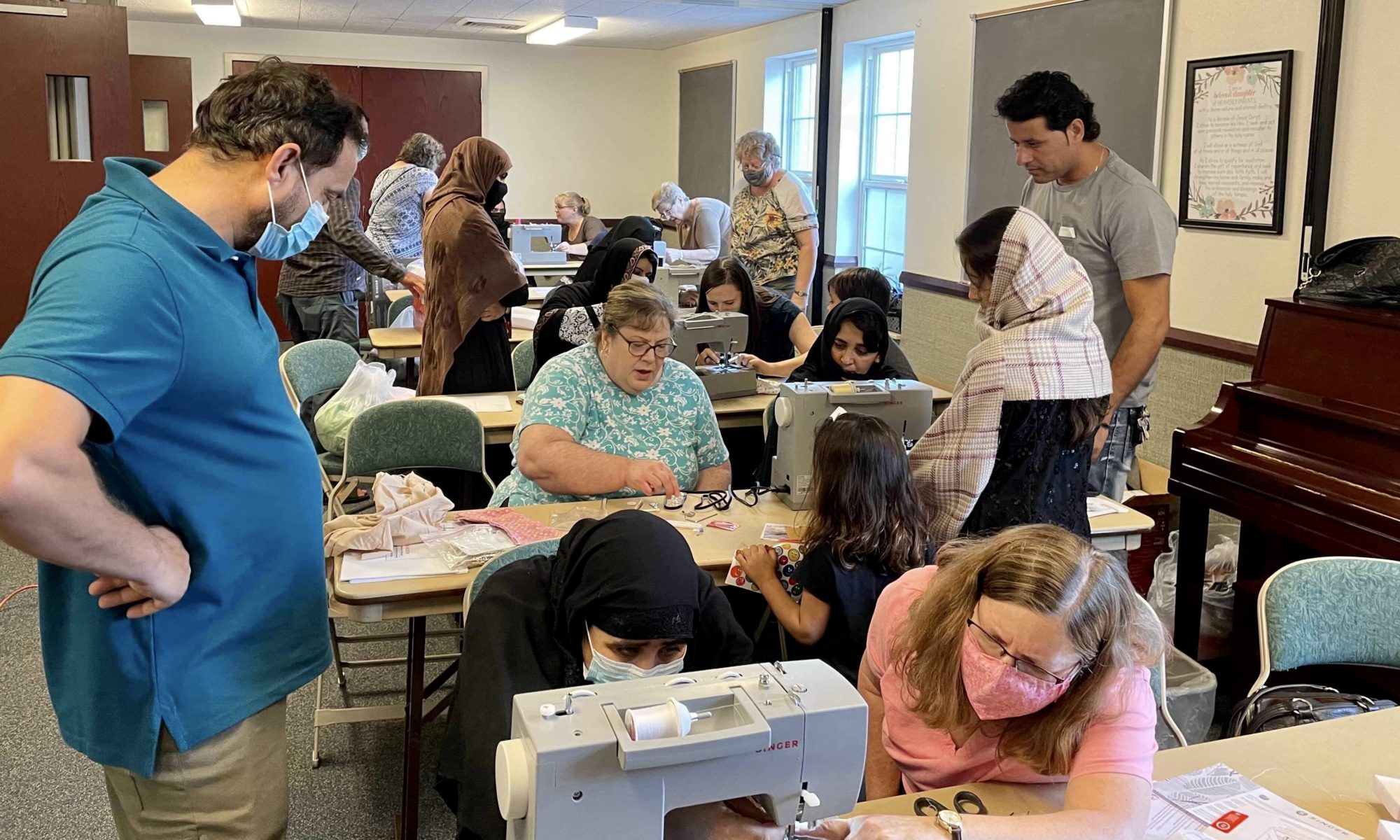By Leisa Parsons and Ken Jarvis, Area Media Specialists
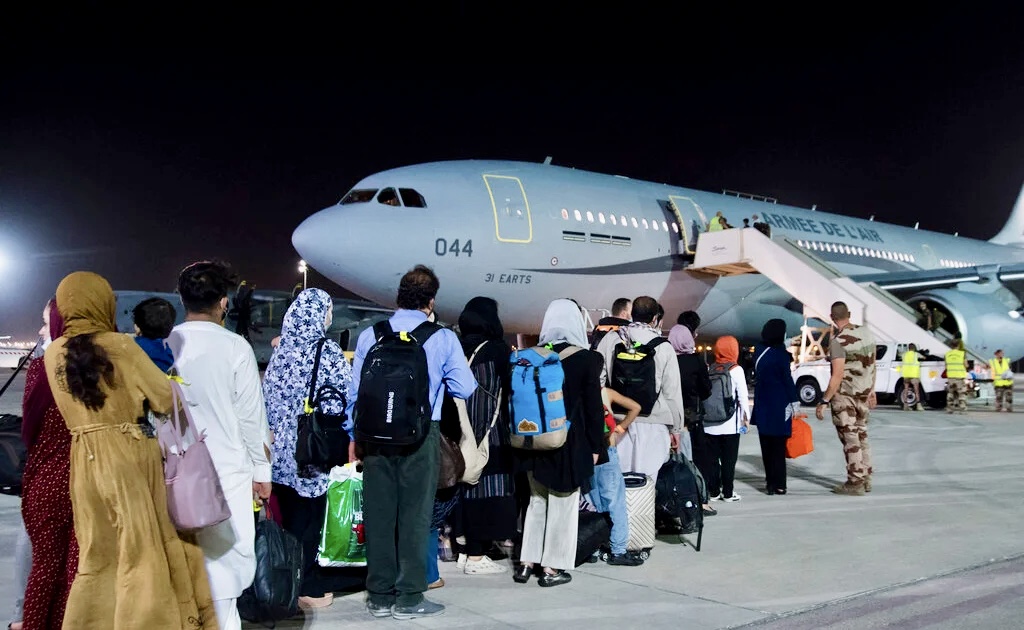
Most of us are familiar with the saying “Think Globally, Act Locally”. The plight of the Afghan refugees is a global story that has inspired many to get involved. This particular story starts in Germany, ends in San Antonio by way of St. George, Utah. It is the epitome of acting locally to alleviate the suffering of others across the globe.
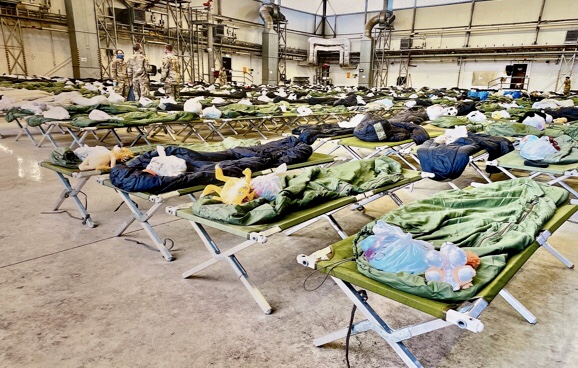
“As soon as I heard about the Afghan evacuees flying to Ramstein Air Base in Germany, just an hour from where we are living, I hoped there would be an opportunity for me to help.” said Valarie Olson, a member of the Church of Jesus Christ of Latter-day Saints living in Germany, where her husband is stationed with the military.
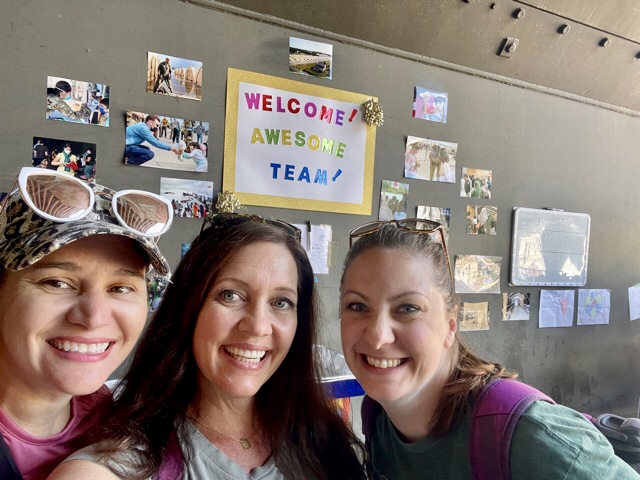
Members of the Kaiserslautern Stake of the Church of Jesus Christ mobilized quickly and emails were sent requesting volunteers. “Count me in” Olson responded, “I remember standing in the hangar on Ramstein Air Base, surrounded by carts full of donated clothes. Afghan refugees urgently needed clothing, as many had arrived with only the clothes they were wearing, some even barefoot. I was one of the many volunteers that morning sorting items into packets to distribute.”
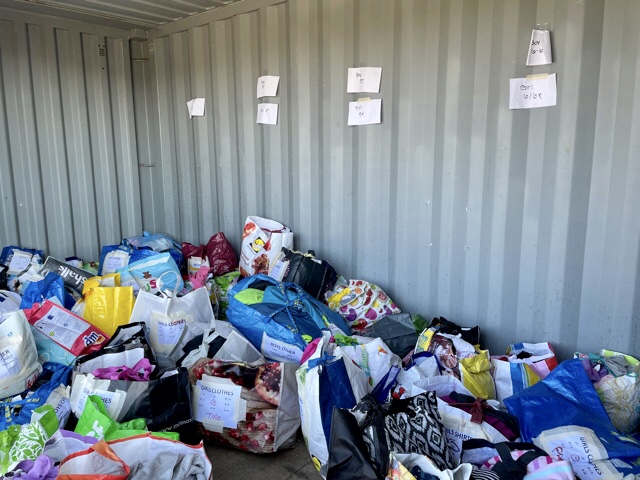
“Packets” she said. “This word connotes to me something sacred. As I gathered and sorted, the hangar felt like holy ground. I tried to imagine the people who would be wearing the clothes and I hoped they would fit.”
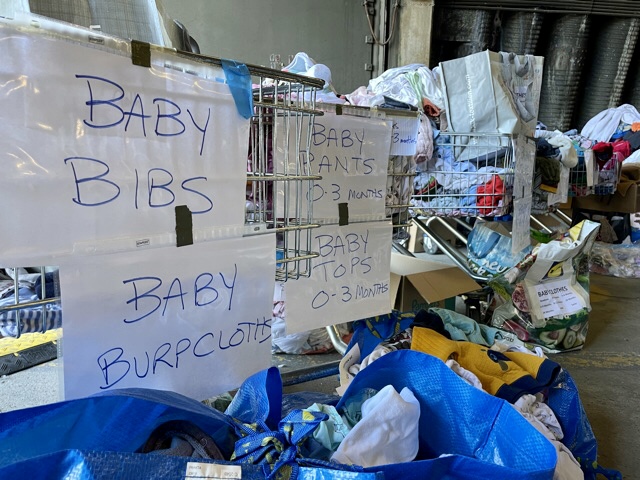
Olson continued: “My perspective was shifting. I knew I would never again judge someone for wearing clothes that were too big, too short or mismatched.”
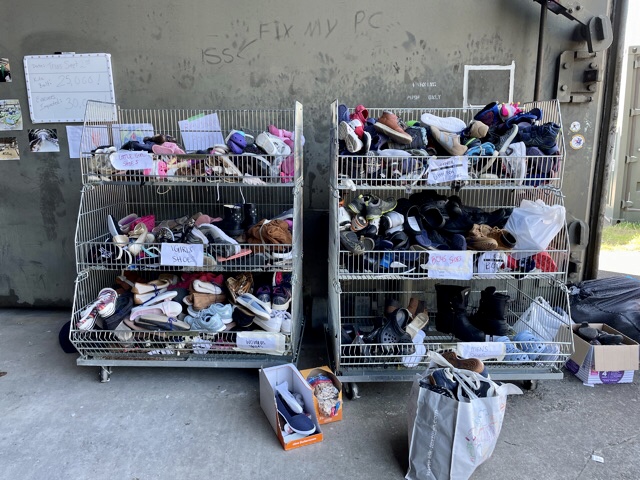
As Olson looked at her fellow volunteers, she was touched by their focus and willingness to work hard. She said all were happy and ready to do whatever needed to be done. She said: “They were the helpers. At that moment, I knew what I wanted to be in my life: a helper.”
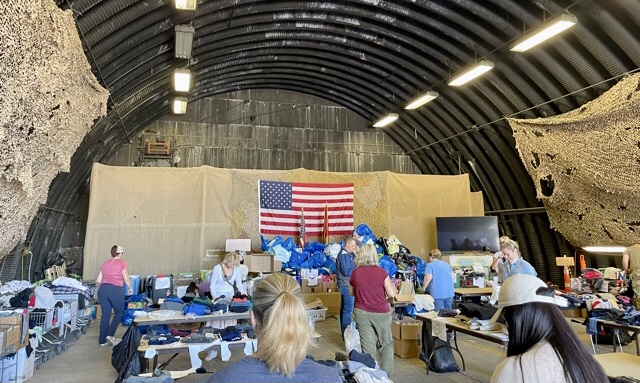
Olson said, “I felt tears well up inside as I looked around, taken aback by the overpowering feeling we were doing God’s work that day. This scripture came to mind: ‘Inasmuch as ye have done it unto one of the least of these my brethren, ye have done it unto me.’ (Matthew 25:40)”
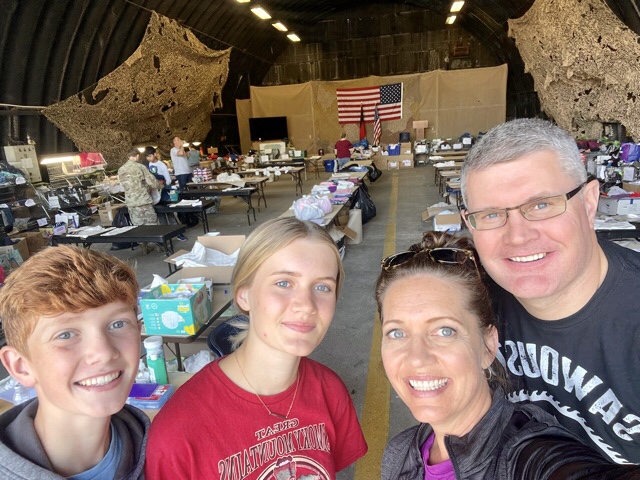
Olson said: “That evening my brother, Matt, called from southern Utah. My excitement and emotion poured over into our conversation. I shared my tender emotions about serving. About being a helper.”
At the time, Ramstein officials were still soliciting donations. Olson said her brother also felt a desire to serve. She suggested that if he and his Church congregation “would rally together and donate monetarily, I could shop for the needed items and make the deliveries.”
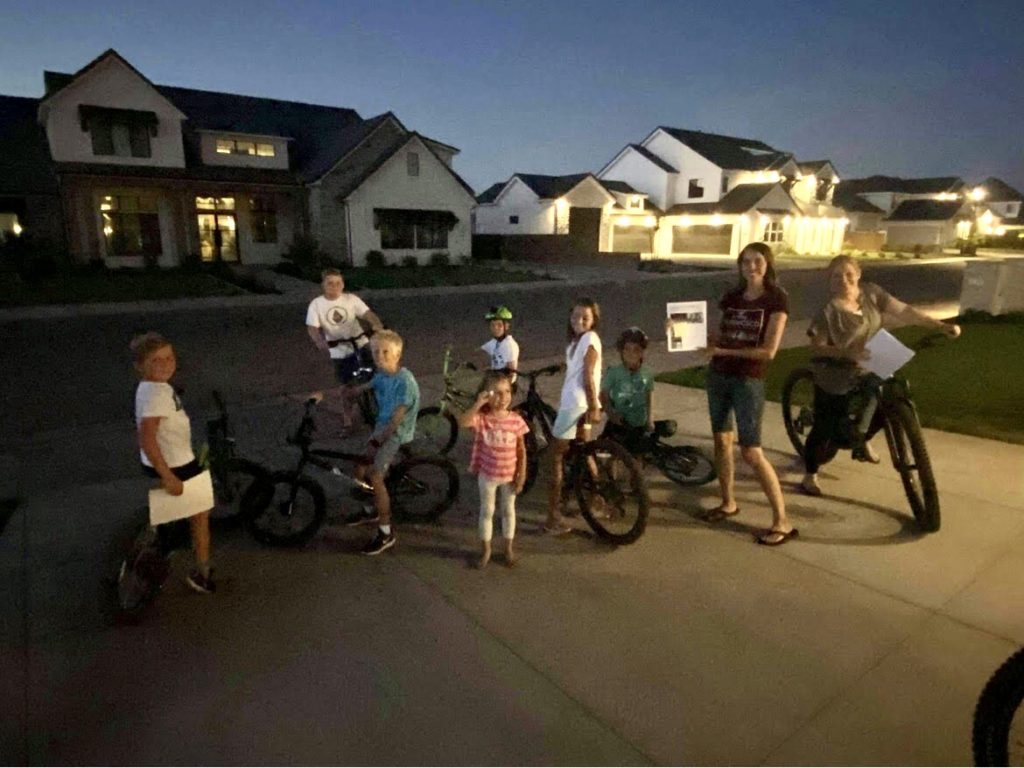
Together, Olson and her brother Matt Ekins made a flyer and Ekins sent it out into their St. George community. Ekins involved the nine-year old boys he works with at Church and together, with their families, they delivered the flyers.
Within a few days, donations totaled over $4,000. “Our hearts were bursting at the generosity.” said Olson.
The refugee situation continued to evolve. When the airport in Kabul closed, the need for further donations ceased.
“What would I do with $4,000 now? There had to be a good use for this generous resource.” Olson wondered. She prayed to know what to do, she said: “My answer came in two words: sewing machines.”
Prior to moving to Germany, Olson had lived in San Antonio. Latter-day Saints in her congregation were heavily involved in gathering donations and volunteering to help refugees relocating to the area. Olson said, “I spearheaded a winter coat drive and ended up gathering more than winter coats. Delivering these items was very rewarding and spurred my heart to continue to reach out and help.”
Through these years of volunteering, Olson came to know the value of the sewing machine to the refugee women. She said: “They want them to make their own traditional clothing and as a means to make an income.”
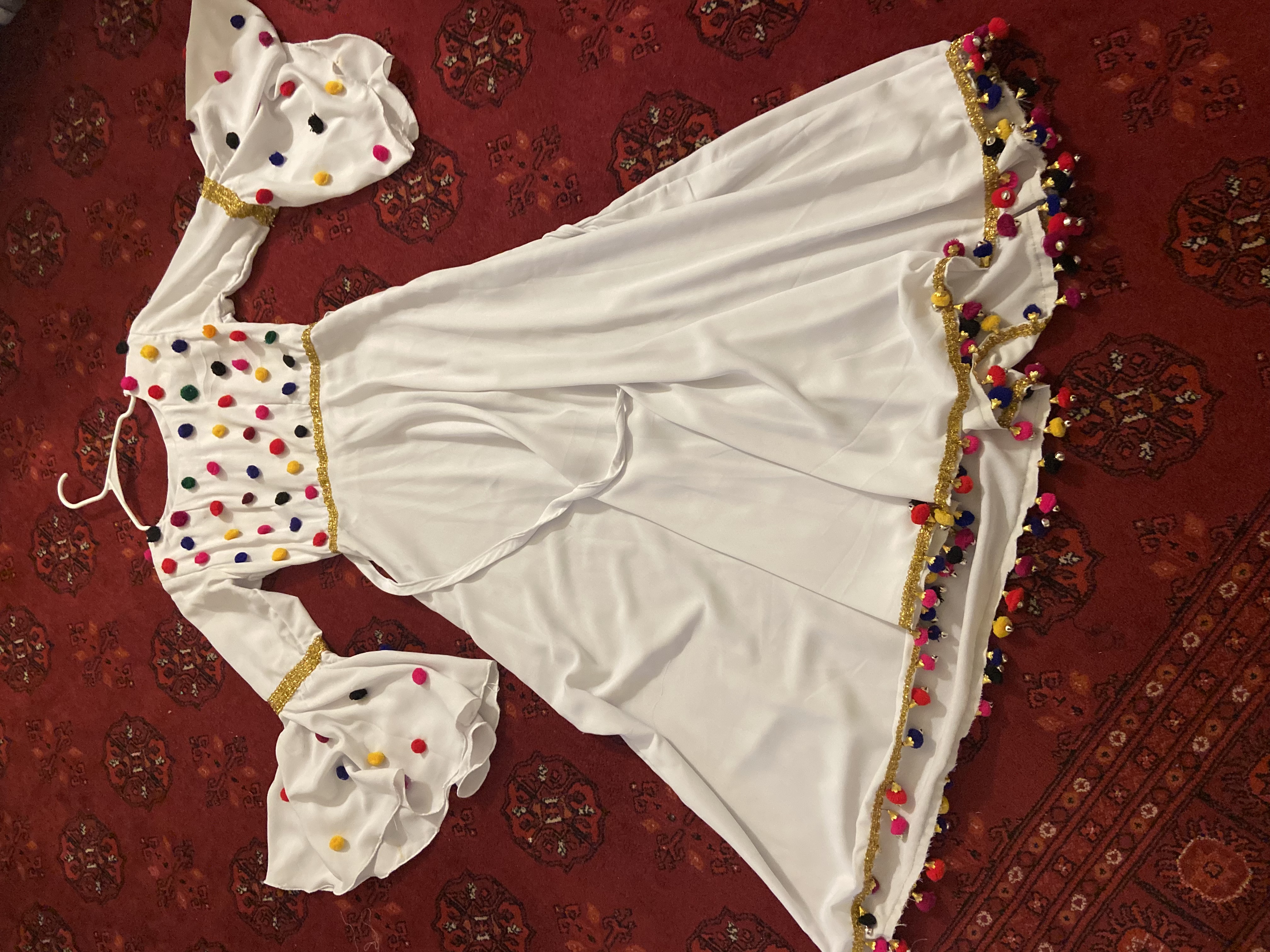
“Maybe,” Olson thought, “this money Matt and I raised in the name of refugees could be used to purchase sewing machines.”
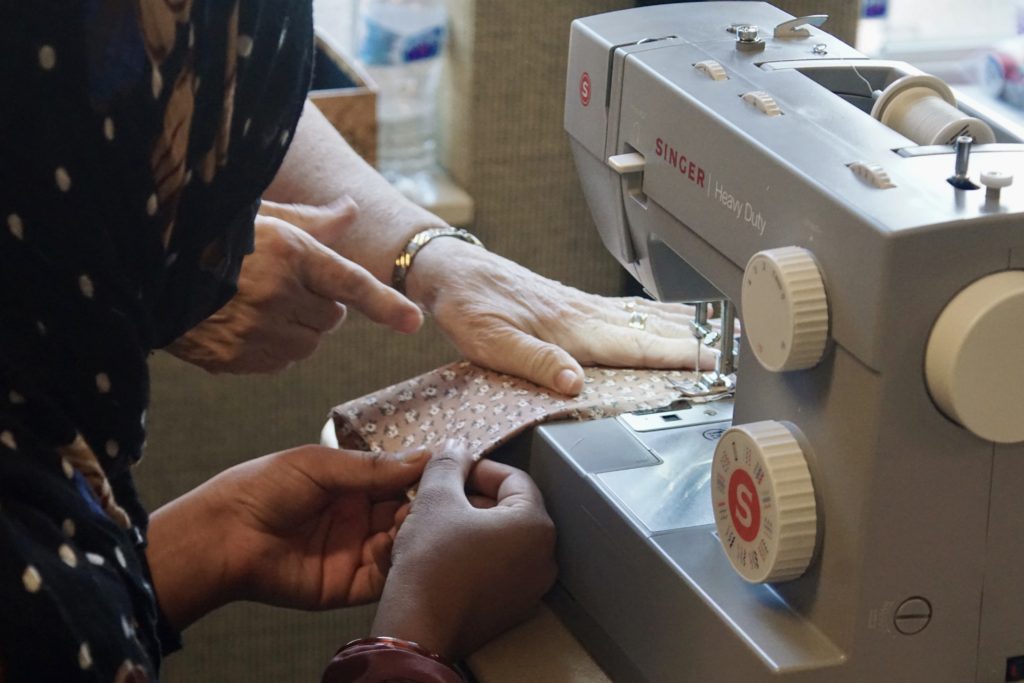
Olson had hit on the perfect item. Pat Tapmeyer, who volunteers with the Center for Refugee Services in San Antonio, said, “Most of these Afghan women would much rather have a sewing machine than a washing machine.”
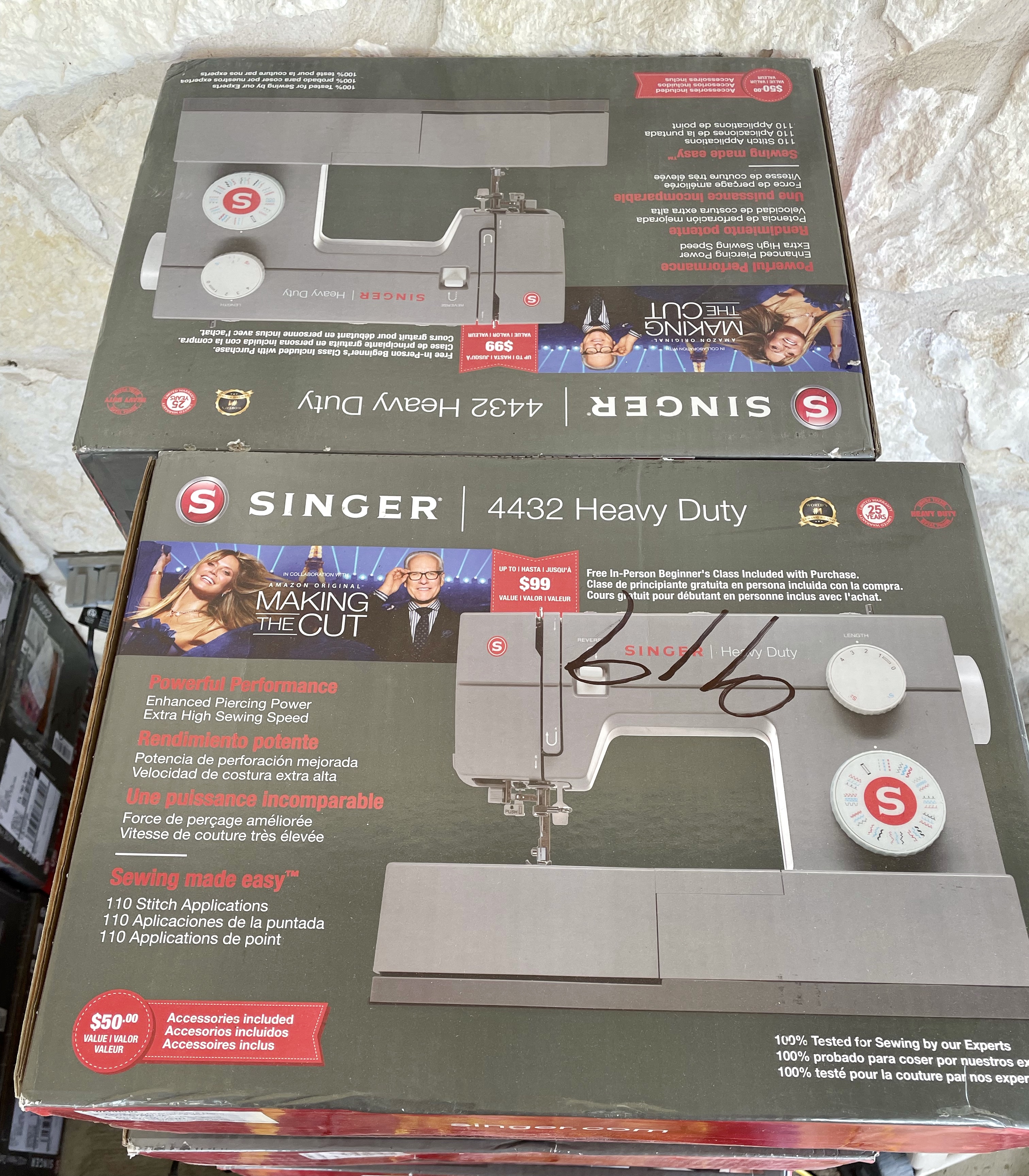
Olson reached out to a Church contact in San Antonio about her idea. With the money, which had now grown to $5,500, 29 heavy-duty sewing machines along with scissors and extra bobbins were purchased.
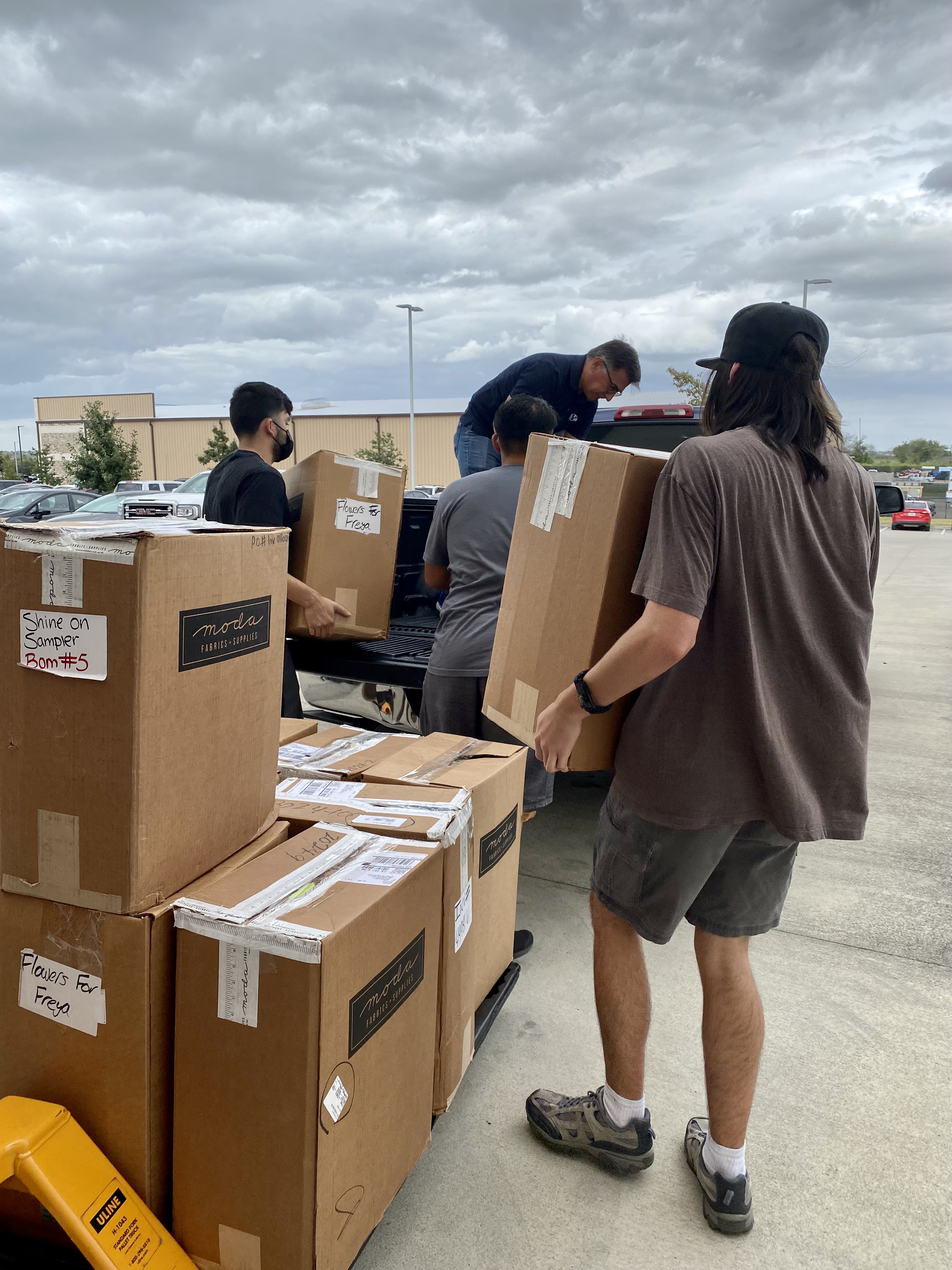
Member of the Area Communications team then sought out donations of fabric from various companies and community friends. The Fat Quarter Shop out of Buda, Texas donated 15 boxes of fabric with approximately 170 yards of fabric in each box.
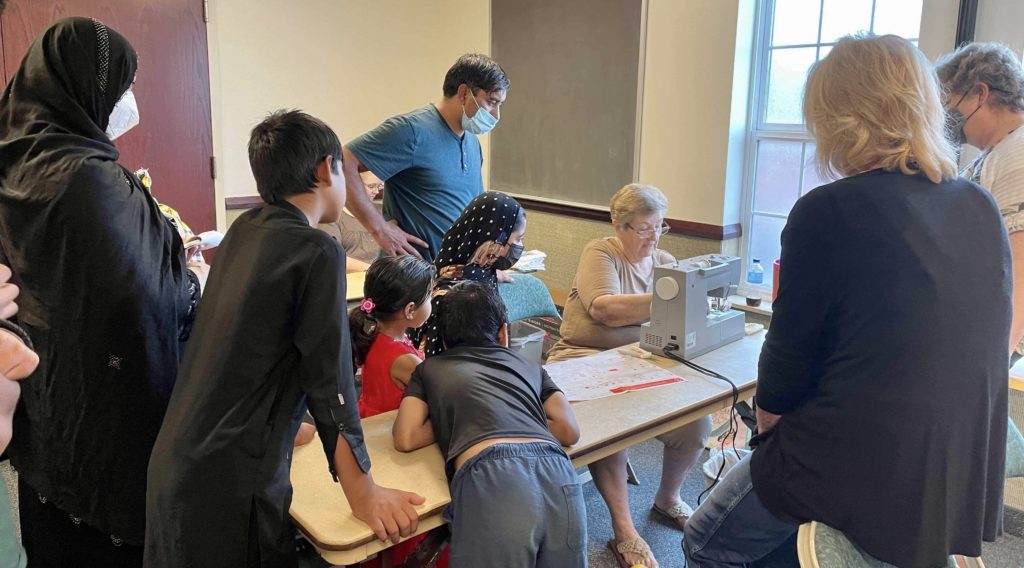
The Center for Refugee Services identified families to receive the machines, and then Becky Bruso, Area JustServe specialist helped to organize a day to hand out the machines and fabric along with instructions for the sewing machines. Bruso said: “Today was an exciting opportunity to help some of the newer Afghan refugees. There is a long waiting list at the Center for Refugee Services for a number of items like couches, tables, lamps, and rugs. Sewing machines always have a long waiting list because they are so rarely donated. We had a connection with some of our Saints in Germany who wanted to donate money to buy sewing machines for the new families who are arriving. So today we were able to give away twenty-nine machines and, at the same time, show the people how to use them.”
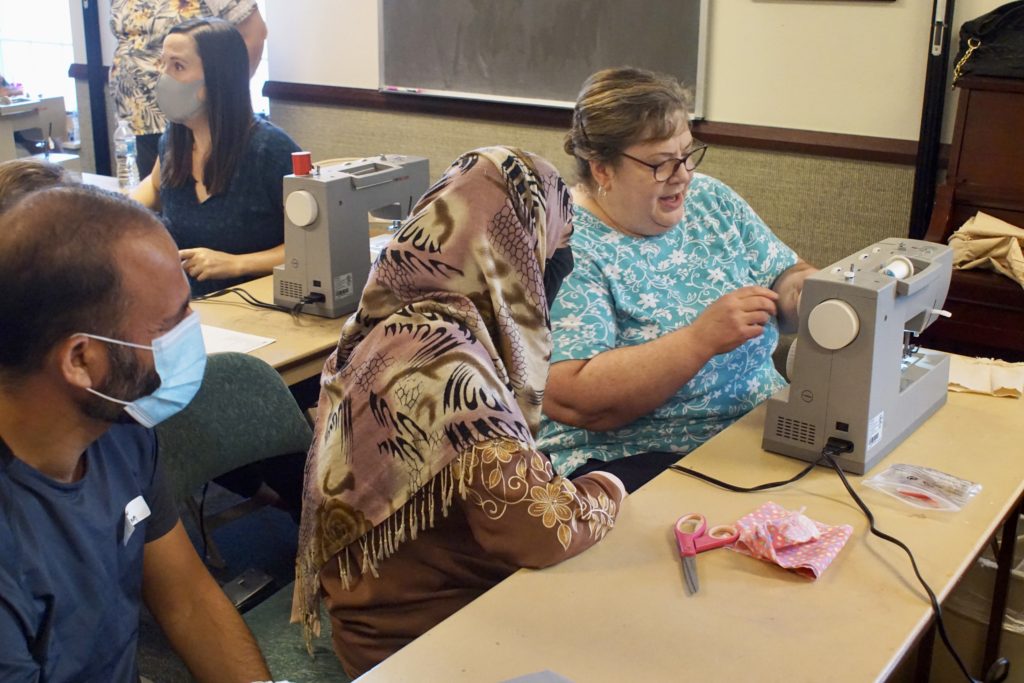
Kathy Kinnaman, who volunteered to help orient the refugees with their new machines said: “It’s been wonderful. The first lady sat next to me and she had her husband, brother and uncle to help translate whatever I told her. I could tell she was an expert but she needed me to show her how to change a needle and where the bobbin was supposed to be placed.”
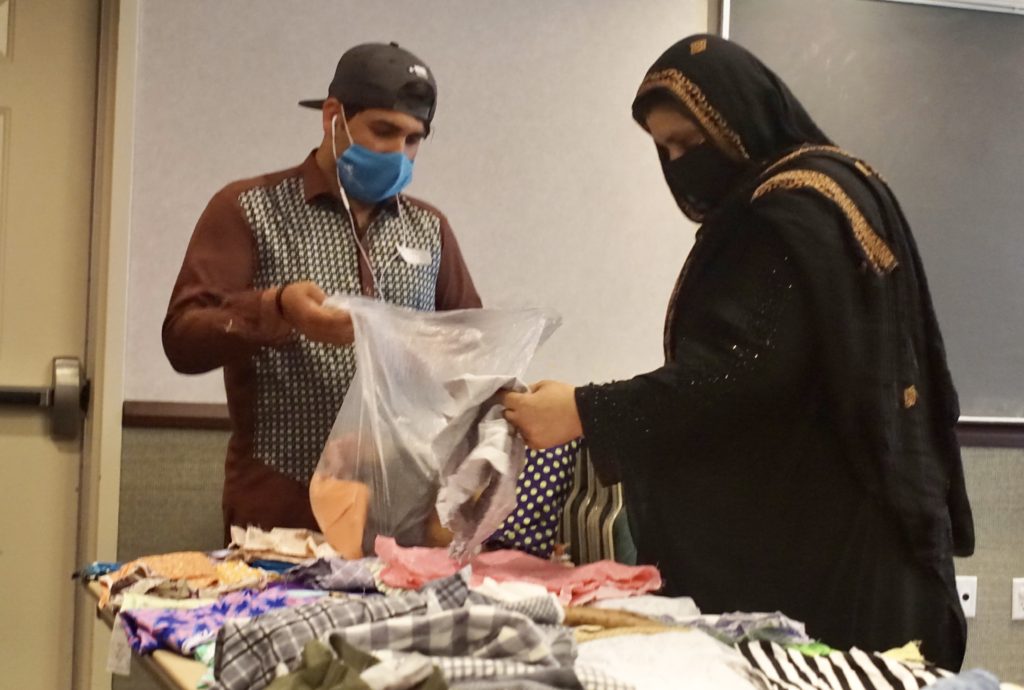
Kinnaman said she thoroughly enjoyed the experience. She said: “I feel that I gave and it was such a good feeling to give. It was satisfying today…. It’s easy to feel for the Afghan people. They’re just lovely people. They are very friendly and they are very smart.”
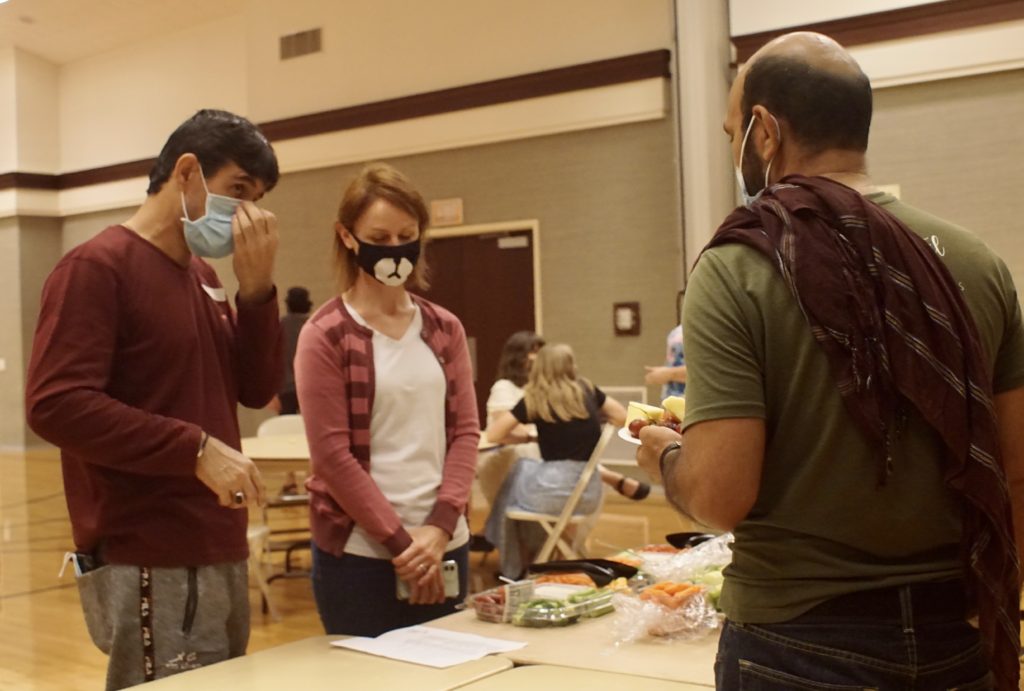
Bruso said: “We invited their families to come and have some food, the children could also play with toys. The husband usually translates for the wife because most of the women are not able to read and they don’t speak English yet. We hope these machines will benefit the families.” Bruso mentioned that most of the families are large, “some have eight or nine kids, and this will help them better outfit their families in clothes that will make them feel comfortable and possibly be a means of income.”
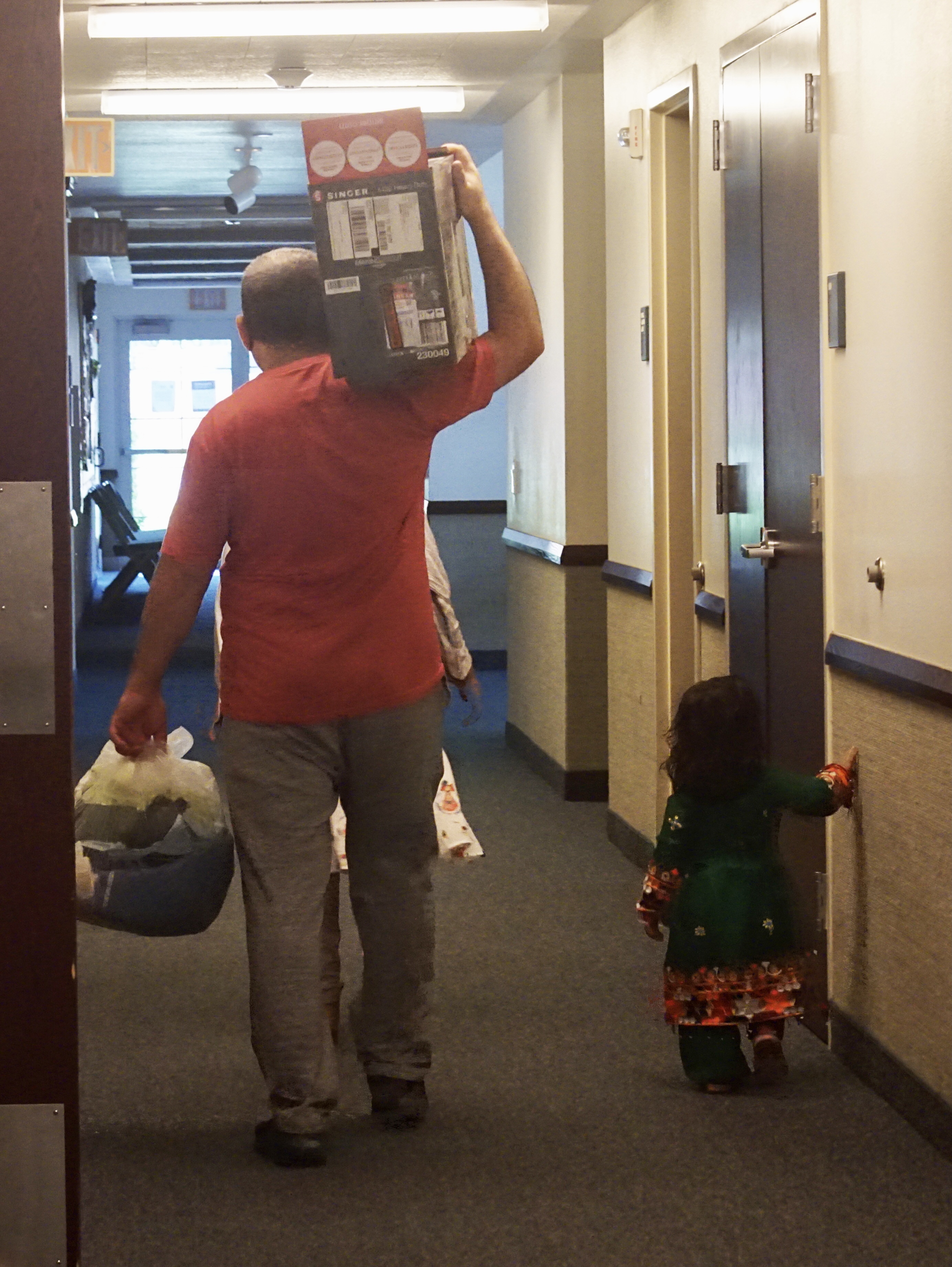
As an example of the talent amongst many Afghan women, Catholic Charities sponsored an “Afghan Fashion Show” at the beginning of October. The seamstresses’ fashions and their unique style was on display and also available for purchase to help bring in some income for the refugees.
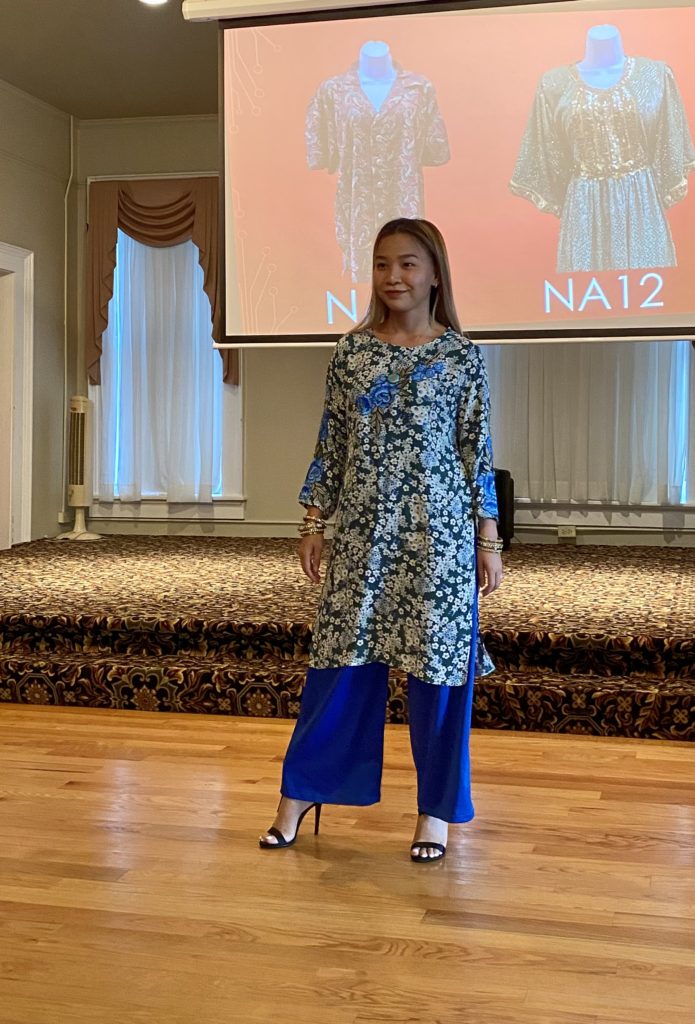
Many more families are expected to arrive in San Antonio, and much help is still needed. Bruso said: “When they get here they get some subsidized housing and a little bit of money to start, but one of the great things about providing these household items is anything that we get them will help them save money to get other things that they need.”
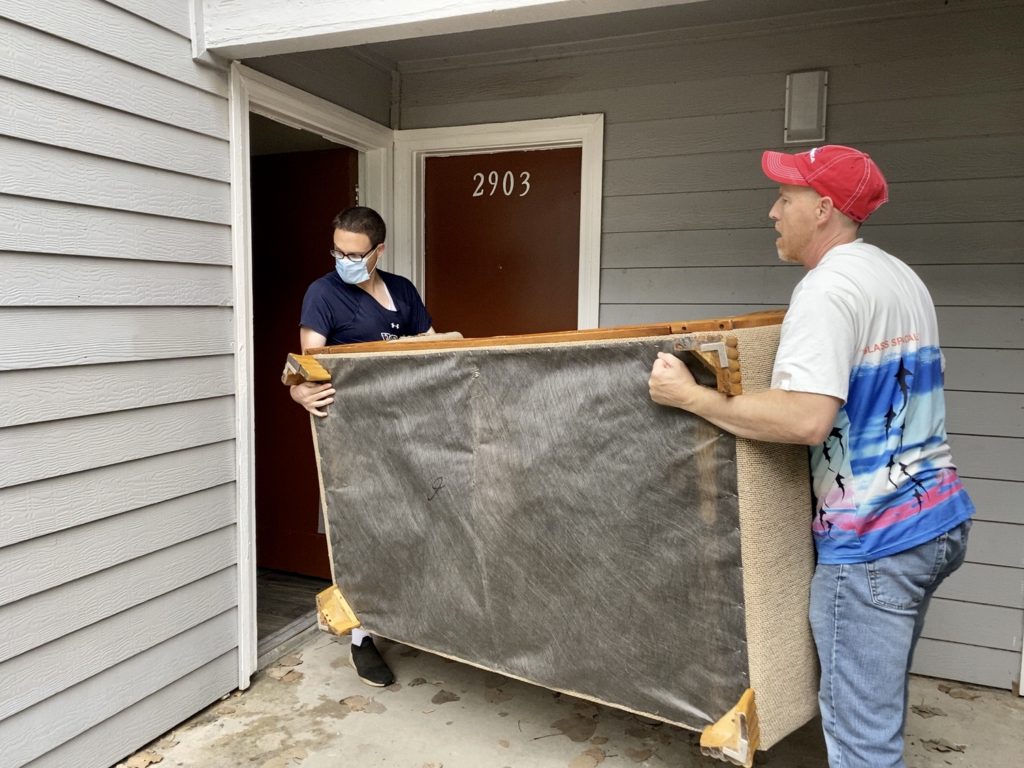
The JustServe website has a number of ways to help and get involved in the community. Bruso said JustServe is about connecting volunteers with community organizations that need their service and donations.
